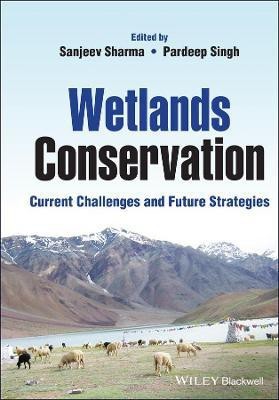Wetlands Conservation(English, Hardcover, unknown)
Quick Overview
Product Price Comparison
Wetlands Conservation An up-to-date overview of approaches for addressing wetlands degradation and its effects on ecosystem services, human health, and other ecosystems Wetlands are essential sources of biodiversity, water purification, groundwater replenishment, flood control, storm protection, sediment retention, recreation and tourism, and more. Human exploitation of natural resources over the past 200 years has caused significant wetlands degradation and loss. Although the Ramsar Convention of 1971 drafted polices for wetland conservation and responsible use, many wetland sites remain inadequately conserved or managed. Maintaining the ecological balance and equilibrium of wetlands requires a clear understanding of the vital role of wetlands, the difficulties they face, and the policies enacted for their protection. Wetlands Conservation: Current Challenges and Future Strategies summarizes both current and emerging management strategies, trends, and policies regarding wetlands protection around the world. The authors provide accurate scientific information on wetlands while discussing the effects of climate change, global warming, modernization in agriculture, and other key topics. Designed to assist in the development of future solutions for wetlands conservation and management strategies, this important volume: Highlights the environmental, socioeconomic, and cultural importance of wetlands Identifies the factors responsible for the failure of many conservation initiatives Describes the natural and anthropogenic factors of wetlands degradation Discusses the role of community-based wetlands conservation and management Explores Ramsar wetlands conservation and its impacts worldwide Wetlands Conservation: Current Challenges and Future Strategies is an invaluable resource for graduate and postgraduate students, researchers, ecologists, policymakers, conservation organizations, and others working in the field of natural resources management.


